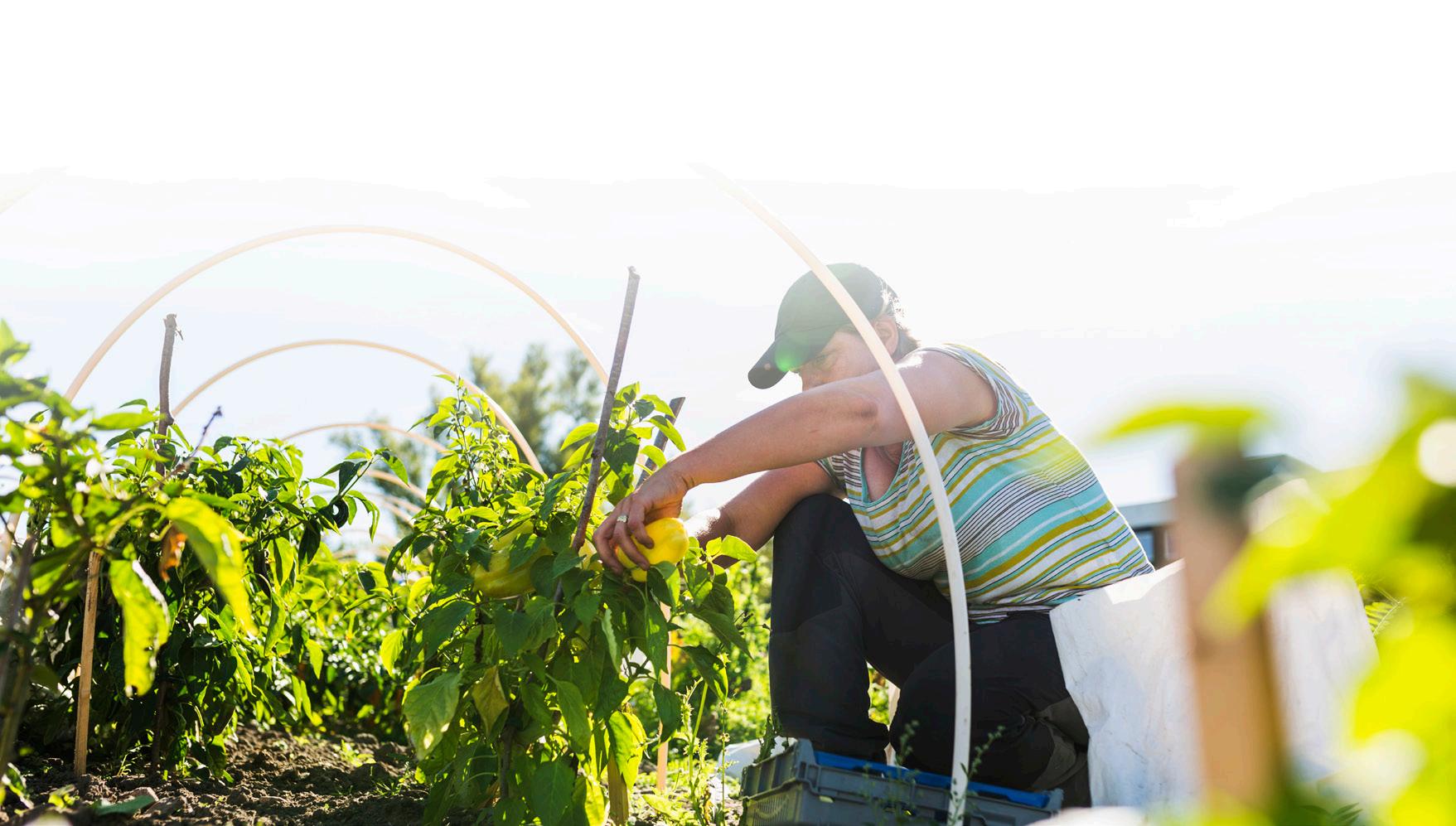
2 minute read
The benefits of an allotment
During World War II and immediately afterwards, almost everyone with a garden grew fruit and vegetables. Food was rationed, so people supplemented their diet with produce they’d grown in their back garden or down on their allotment.
During the 1960’s allotments began to go out of fashion and continued to decline in popularity. As a society we were more affluent, more likely to buy what produce we needed from the local supermarket.
Advertisement
But with food prices soaring and less produce available on the supermarket shelves and added to an increased interest in plant-based diets and locally sourced food, allotments are enjoying a popularity surge.
And the statistics in the news are scary. The number of food banks is growing rapidly as families struggle to put even the most basic provisions on the table. There are concerns about additives and pesticides on shop bought fruit & veg yet the cost of organic food puts it out of the reach of most consumers.
Is it any wonder that so many of us are taking matters into our own hands deciding to emulate our grandparents and grow our own food? But growing food requires space and modern housing often means small gardens. This is where allotments come into their own.
Allotments don’t just benefit the humans who tend them. Each plot is a complex web of plants, microorganisms, fungi, insects and animals supporting pollination and offering a refuge for wildlife. Bugs are important to the healthy functioning of an allotment. They pollinate fruit and veg control pests and improve the soil. Many allotment gardeners will tell you that a spell on the plot nurturing plants and contemplating nature makes them feel more calmer and more hopeful and there have been recent studies that have measured this benefit.
The physical benefits of regular spells of gardening help plot holders to keep fit even if they have sedentary jobs, the physical exercise also contributes to their mental wellbeing. Gardening can also help towards good gait and balance in older gentlemen and help with cognitive decline.
If managed properly an allotment can produce enough food to supplement a family’s weekly shop, with fresh fruit & vegetables over the year.
As many new plot holders discover, growing vegetables requires acquiring new knowledge and skills and the satisfaction gained from eating their first tomato or new potato makes them taste even more delicious!
Working a plot all year round means that allotment holders experience the seasons, witness the behaviour of birds, insects and other animals.
To acquire an allotment, simply approach your council. There may be a waiting list but councils are taking allotments and community gardens much more seriously now and many are actively seeking to provide more sites in the future.
More information from Middlesbrough Council: https://tinyurl.com/yc8apvv4.










